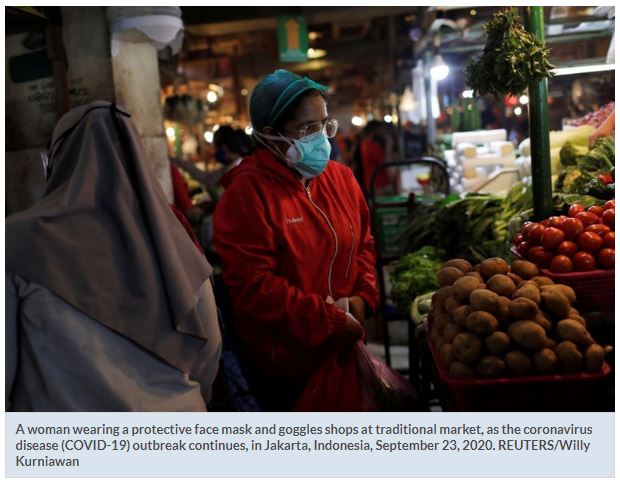Indonesia says distribution of social aid has improved, will help economy
JAKARTA: Indonesia’s government said on Friday it has significantly improved the distribution of social assistance to the poor to cushion the impact of the Covid-19 coronavirus pandemic.
Febrio Kacaribu, the head of the finance ministry’s fiscal policy office, said surveys by the World Bank showed there has been major improvement in distribution of aid and this would help Southeast Asia’s largest economy perform better from the third quarter onwards.
Slow disbursement of the government’s nearly $50 billion Covid-19 response budget was among the factors leading to a 5.32% contraction in gross domestic product (GDP) in the second quarter.
A survey in August showed 90% of intended recipients had received at least one type of the government’s social assistance programmes, up from 40% in May, Febrio told a virtual news conference.
“Now we’re confident enough to say that one in 10 people isn’t getting (social assistance), which is still a problem and we’re seeking to improve, but at least the progress has been tremendous,” he said.
The government’s total allocation for social protection in 2020 is 203.9 trillion rupiah ($13.73 billion) in the form of cash transfers, assistance in obtaining food staples, electricity bill discounts and paid skills training.
Febrio also highlighted improvements in the job market.
“We saw that more than 75% of workers who had ceased to work in May have now returned to work. Seventy percent among them returned to the same jobs,” he said.
“This gives us hope that the third quarter will be better than the second quarter and the fourth quarter will be much better than the second quarter.”
Indonesia is facing its first recession since the Asian financial crisis due to the fallout from the pandemic and anti-virus measures that have curbed activity.
The government expects GDP to shrink further in the third quarter but at a more moderate rate of 2.9% to 1.0%. The official full-year outlook is for a contraction of 1.7% to 0.6%. – Reuters


 Thailand
Thailand




